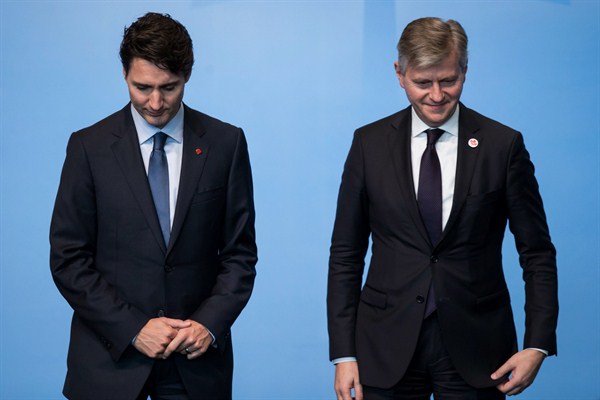In mid-March, Canada announced it would be sending 250 troops and six helicopters on a 12-month deployment to support the United Nations peacekeeping mission in Mali, which is considered the deadliest peacekeeping mission in the world. Since 2013, 162 troops from the U.N. mission in Mali, known as MINUSMA, have been killed by al-Qaida and other extremists. Canada’s involvement in international peacekeeping has lagged in recent years, but shortly after taking office in 2015, Prime Minister Justin Trudeau promised that his government would commit 600 troops to U.N. peacekeeping missions. In an email interview, Simon Palamar, a research fellow on global security and politics at the Center for International Governance Innovation in Waterloo, Canada, discusses the decision to send personnel to Mali and the political debate in Canada over its peacekeeping role.
WPR: What motivated Canada to recently commit 250 peacekeepers to the U.N. mission in Mali? And how important will Canada’s contribution be to that mission?
Simon Palamar: The Trudeau government’s motives are best explained by a combination of domestic political needs and the needs of MINUSMA. Trudeau explicitly campaigned on a promise to “renew Canada’s commitment to peacekeeping.” While voters typically don’t make election decisions on the basis of foreign policy, in 2015 Trudeau very effectively used foreign and military policy to draw a sharp contrast between himself and Canada’s incumbent prime minister, Stephen Harper. Trudeau pitched a Canadian foreign policy vision that would involve “re-engaging” with multilateral institutions and implicitly invoked a return to a halcyon age of Canadian peacekeeping and multilateralism that began in the mid-1950s and extended into the 1970s. With Canadian participation in U.N. peacekeeping operations hitting a 35-year low this past year, taking some action to deliver on past promises was probably necessary.

